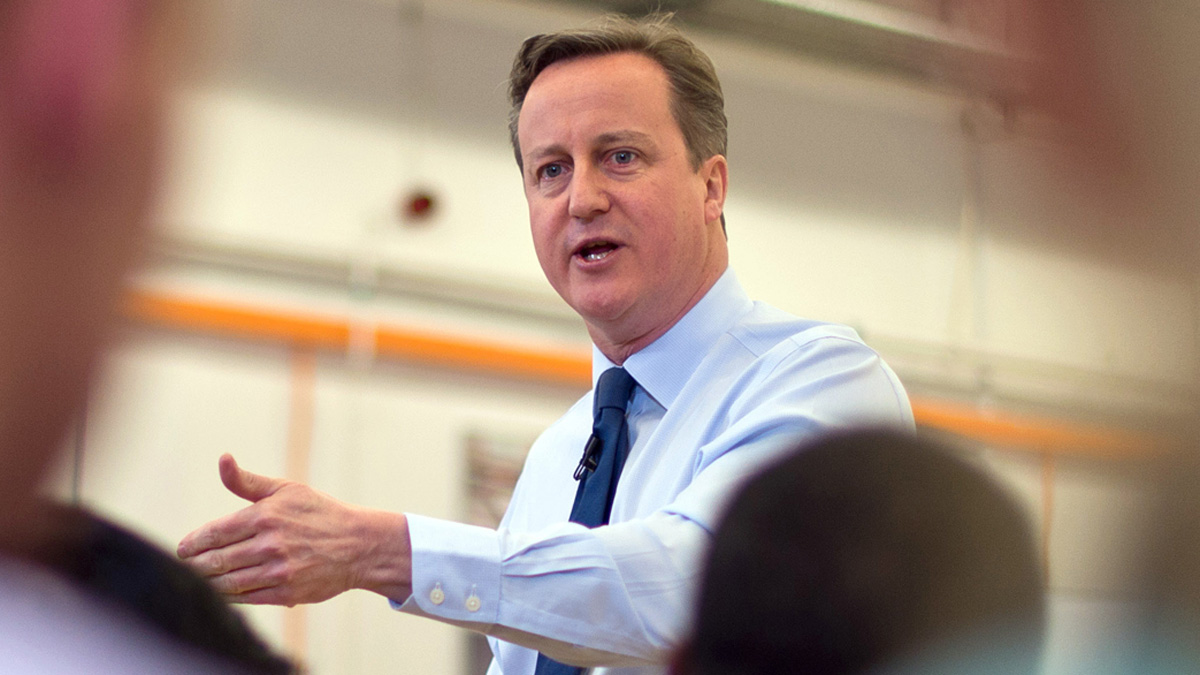Help to Save offers £1,200 bonus to tax credit claimants
Workers have to put aside money for two years to get initial boost and four years to get maximum amount

A free daily email with the biggest news stories of the day – and the best features from TheWeek.com
You are now subscribed
Your newsletter sign-up was successful
As it faces renewed attacks over its austerity policies, the government is out to prove its credentials in fighting poverty by unveiling a scheme to help the lowest paid build a savings buffer.
In January, David Cameron announced that this year's Budget would see the introduction of a Help to Save scheme for those on working tax credits and universal credit. Two days ahead of Chancellor George Osborne's speech, the Prime Minister has fleshed out the plans, confirming that the 3.5 million people on in-work benefits will be offered a government bonus of up to £1,200 over four years.
The BBC reports it will work like this: claimants will get a 50 per cent boost on any savings put aside after two years, up to a maximum of £600; they'll then be eligible for another £300 a year over two years, on the same terms. In total, anyone who can save £2,400, or £50 per month, will get £1,200 more in free money.
The Week
Escape your echo chamber. Get the facts behind the news, plus analysis from multiple perspectives.

Sign up for The Week's Free Newsletters
From our morning news briefing to a weekly Good News Newsletter, get the best of The Week delivered directly to your inbox.
From our morning news briefing to a weekly Good News Newsletter, get the best of The Week delivered directly to your inbox.
According to the government, almost half of all UK adults have less than £500 set aside for emergencies and are often forced to take on credit to cope with financial shocks. Cameron, who last year proclaimed an "an all-out assault on poverty" during this parliament, said the new scheme would give "hard-working people the extra support they need to fulfil their potential".
But not everyone is convinced. Labour said the scheme was "like stealing someone's car and offering them a lift to the bus stop", saying that cuts to benefits would mean "families are going to struggle to have enough money to make it to the end of the week, let alone save for the future".
Treasury sources indicated to the BBC that the scheme would cost around £70m over the first two years. Chris Mason, the BBC's political correspondent, said that if the average person benefitting was able to put aside £10 a month, he or she would get a bonus of £120 after two years. He said that it would help 600,000 people.
The Mirror also claims the scheme could "make people worse off". By "dangling the carrot" of a savings boost at the end of two years, it could encourage people to take on credit to meet day-to-day expenses, thereby proving more costly in the long run. The paper also suggested that existing thresholds on savings for benefit claimants might see payouts cut for those using the scheme.
A free daily email with the biggest news stories of the day – and the best features from TheWeek.com
On this last point the paper is wrong, however, as government guidance currently states that capital in current and savings accounts is not considered when assessing entitlement to tax credits. Income from savings must be declared alongside earnings, but only large sums would have a material impact on what a person could claim.
-
 Fine food on a budget
Fine food on a budgetThe Week Recommends Excellent value eateries with the Michelin inspectors’ seal of approval
-
 Where to go for the 2027 total solar eclipse
Where to go for the 2027 total solar eclipseThe Week Recommends Look to the skies in Egypt, Spain and Morocco
-
 The end of mass-market paperbacks
The end of mass-market paperbacksUnder the Radar The diminutive cheap books are phasing out of existence
-
 Brits keeping 21 million ‘money secrets’ from friends and family, survey reveals
Brits keeping 21 million ‘money secrets’ from friends and family, survey revealsSpeed Read Four in ten people admit staying quiet or telling fibs about debts or savings
-
 London renters swap cramped flats for space in suburbia
London renters swap cramped flats for space in suburbiaSpeed Read New figures show tenants are leaving Britain's cities and looking to upsize
-
 Should the mortgage holiday scheme have been extended?
Should the mortgage holiday scheme have been extended?Speed Read Banks warn that some homeowners may struggle to repay additional debt
-
 RBS offers coronavirus mortgage holidays
RBS offers coronavirus mortgage holidaysSpeed Read Taxpayer-owned bank follows measures taken in virus-struck Italy
-
 What are the changes to National Savings payouts?
What are the changes to National Savings payouts?Speed Read National Savings & Investments cuts dividends and prizes for bonds
-
 China clears path to new digital currency
China clears path to new digital currencySpeed Read Unlike other cryptocurrencies, Beijing’s would increase central control of the financial system
-
 Why are donations surging to the RNLI?
Why are donations surging to the RNLI?Speed Read Charity enjoys flood of funding after criticism for overseas work
-
 PPI deadline day: how to claim
PPI deadline day: how to claimSpeed Read Final chance for consumers to apply for compensation